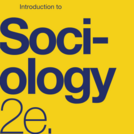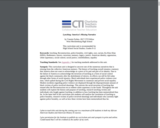
Define deviance, and explain the nature of deviant behaviorDifferentiate between methods of social control
- Subject:
- Social Science
- Sociology
- Material Type:
- Module
- Author:
- James Farmer
- Date Added:
- 08/26/2018

Define deviance, and explain the nature of deviant behaviorDifferentiate between methods of social control

Introduction to Sociology 2e adheres to the scope and sequence of a typical, one-semester introductory sociology course. It offers comprehensive coverage of core concepts, foundational scholars, and emerging theories, which are supported by a wealth of engaging learning materials. The textbook presents detailed section reviews with rich questions, discussions that help students apply their knowledge, and features that draw learners into the discipline in meaningful ways. The second edition retains the book’s conceptual organization, aligning to most courses, and has been significantly updated to reflect the latest research and provide examples most relevant to today’s students. In order to help instructors transition to the revised version, the 2e changes are described within the preface.


Understand how values and beliefs differ from normsExplain the significance of symbols and language to a cultureExplain the Sapir-Whorf hypothesisDiscuss the role of social control within culture


Define deviance, and explain the nature of deviant behaviorDifferentiate between methods of social control

This curriculum unit is designed to uncover one of the numerous narratives that is
missing from the collective American memory. The history of lynching overall remains a memory
that America does not want to acknowledge as a piece of its past and part of its identity. Due to
the failure of America to acknowledge the terrorism of lynching as a form of social control
against the black community after the abolishment of slavery, its effects can still be felt today
through other forms of racial injustice. Black individuals have experienced police violence over
time, which spiked during the Civil Rights Movement to counteract and prevent racial equality.
Modern incidents regarding police violence are displayed through the disproportionate amount of
black victims of police involved shootings. This mirrors the racial terrorism of lynching that
ensued after the Reconstruction era to redeem white supremacy in the South. Throughout the unit
students will explore the history and purpose of lynching, research lynching victims and
individuals who fought against lynching, in addition to how lynching has been memorialized thus
far. In the latter half of the curriculum unit students will analyze the correlation of lynching to
police brutality, research victims of police involved shootings and individuals who currently fight
against police brutality, as well as how these victims have been memorialized thus far.

What is the “new Jim Crow”? Throughout its history, the United States has been structured by a racial caste system. From slavery to Jim Crow to mass incarceration, these forms of racialized social control reinvented themselves to meet the needs of the dominant social class according to the constraints of each era.

Textbook, slides, and class activities related to groups and formal organizations, and deviance and social control. Primary text: OpenStax Introduction to Sociology 2e

Unit 6 – Deviance and Social ControlRead: Chapter 7 pages 136 – 138Definition of Deviance. - The effects of deviance on society: Promotes social solidarity by distinguishing “us” from “them;” Helps people adjust to change and ease the shock; Provides a way in which some individuals and groups introduce their agenda to the rest of society. Are there any universal laws? It seems that in every society murder is a crime-- (But there are a very wide set of circumstances under which killing is permitted. What one society considers to be murder, another will consider a justifiable homicide example, in one society in the middle east a woman can be beheaded for adultery. What American court would levy this sentence?!)Identify methods of social control - Conformity vs. ObedienceSociological Theoretical Perspectives of Deviance: Functionalist Perspective, Conflict Perspective and Interactionist Perspective of DevianceSociology: Understanding and Changing the Social World, Read: Page 199 - 200 Table 7.1 “Theory Snapshot: Summary of Sociological Explanations of Deviance and Crime” Specific Theoretical Perspectives of Deviance: Durkheim’s Function of Deviance, Robert Merton’s Anomie Theory of Deviance, Subculture Theory of Deviance, Social Control Theory, Feminist Perspective, Sutherland’s Differential Association Theory, Labeling TheorySociology: Understanding and Changing the Social World, Read: Pages 200-210